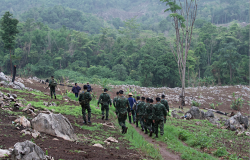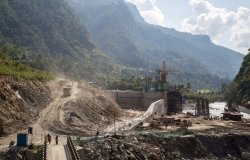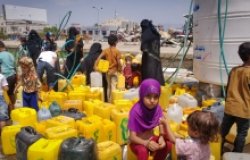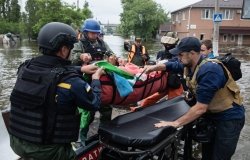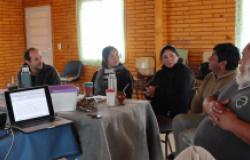Ethiopian Expert to Discuss Population Growth, Environmental Damage, and Poverty at Wilson Center
Educating Ethiopian girls could reduce deforestation and land degradation, according to speaker Sahlu Haile.
Decades of population growth in Ethiopia have contributed to overfarming and deforestation, which have degraded the environment and undermined development. According to Sahlu Haile, senior program advisor and Ethiopia country representative for the David and Lucile Packard Foundation, "The key to achieving sustainable growth lies in reducing the rate of population growth, managing the environment, and building the platform for development. Educating and empowering young girls, changing traditional practices that encourage early marriage and early childbearing, and increasing access to family planning are all steps that could contribute to reducing the country's rapid population growth."
But half-hearted attempts to stabilize Ethiopia's population growth have not stopped the de facto demolition of his country's natural resources: "While Ethiopia has developed a population policy to encourage such efforts, it has so far struggled to implement it due to inaction, disinterest, and ambivalence by senior officials." Join Sahlu Haile and Charles Teller, senior technical advisor at USAID's Office of Population and Reproductive Health, at the Woodrow Wilson Center on April 14th at 12:00 p.m. to discuss population, development, and environment in Ethiopia.
What: Population, Development, and Environment in Ethiopia
Who: Sahlu Haile, Senior Program Advisor and Ethiopia Country Representative David and Lucile Packard Foundation
When: Thursday, April 14, 2005, 12:00-2:00 pm
Where: Woodrow Wilson International Center for Scholars, 5th floor conference room.
The Woodrow Wilson Center is located in the Ronald Reagan Building at 1300 Pennsylvania Avenue.
Related Links
Related Program

Environmental Change and Security Program
The Environmental Change and Security Program (ECSP) explores the connections between environmental change, health, and population dynamics and their links to conflict, human insecurity, and foreign policy. Read more
